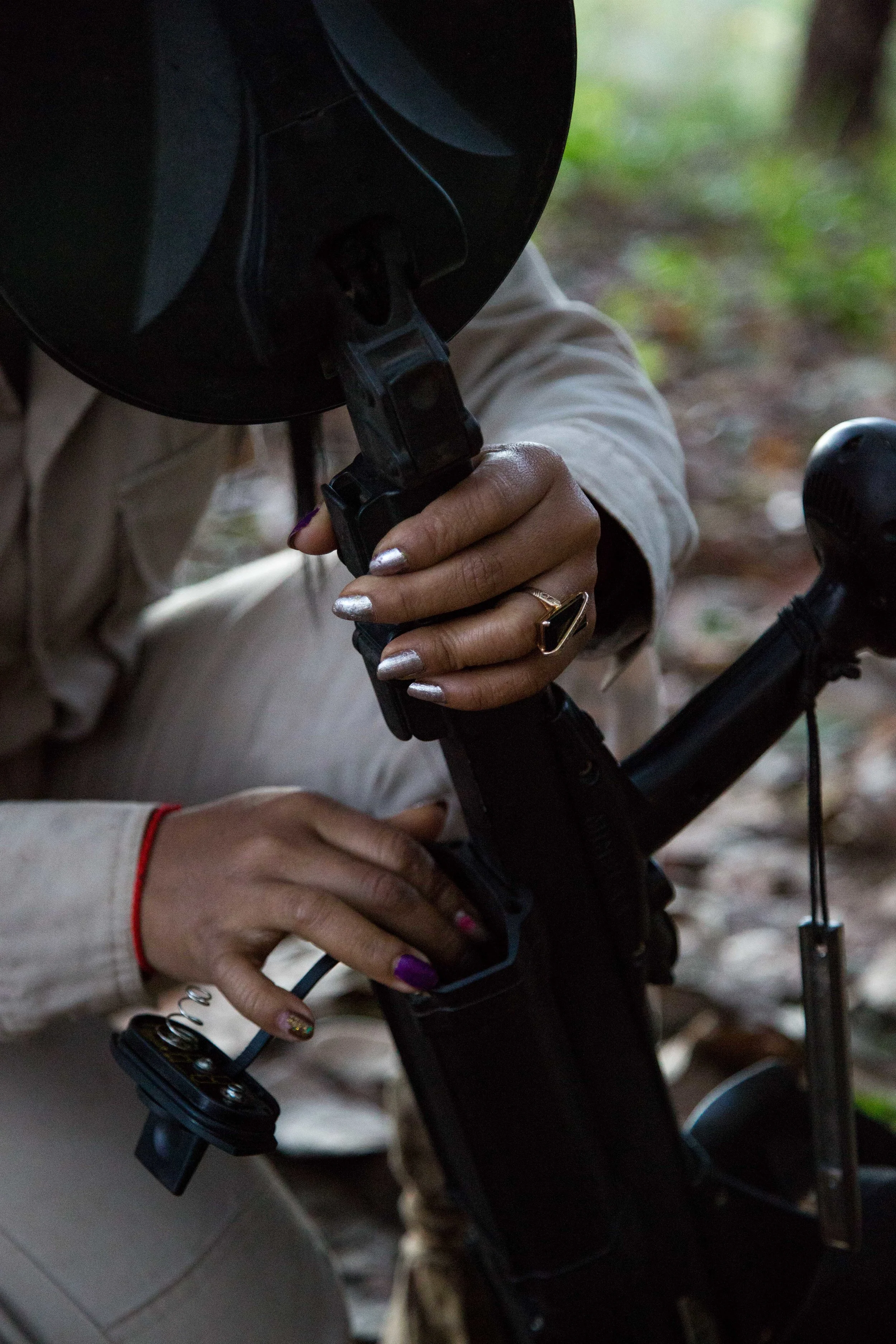






















In the far eastern province of Ratanakiri the smoke rises over the thick bush as the loud bang of a controlled detonation goes unnoticed. Here, it is all too common to find the remnants of a war long ended but still making its way into everyday life. Roughly manicured nails reach into the ground to sweep a magnet over the blast site, making sure all fragments of the bomb have detonated. The hand belongs to Phalla Pen, one of five members of an all-female demining team that searches vast farmland day by day, slowly freeing the land back to the people. The makeshift ambulance created to be on hand in case the detonation doesn’t go to plan turns back into their work vehicle as the women pack up the explosives, returning to Norwegian Peoples Aid headquarters for debriefing and to record the cluster bombs they disposed of that day.
Between 1965 and 1973, over 2 million tonnes of munitions were dropped in 230,000 bombing missions over Cambodia; MAG International reports the number of cluster munitions dropped but failed to explode in Ratanakiri alone lies between 1.9 – 5.8 million, which continue to threaten lives in the province. The economy relies on agriculture and farming, but when the simple act of digging a hole could risk death, options are limited.
In the male-dominated field of munitions, female de-miners are still a novelty in the industry but have proven to be critical in rebuilding Cambodia. Women who may otherwise be overlooked in their communities are given the chance to have a well-respected profession; they are highly skilled in bomb detection and medical training. The steep, dense terrain they sweep with metal detectors every day in the blistering, sweaty sun is no easy job. The average Cambodian factory employee working every day with no benefits could earn up to $100 per month. The Norwegian Peoples Aid pays the women de-miners a living wage of $300 USD per month, with health checks, uniforms, severance pay, accommodation, food, and even maternity leave. With such improved living conditions, they show their pride through the bling and multi-coloured manicures that any woman would flaunt. When asked why they want such a dangerous job, they reply with cheeky ‘I just want to blow stuff up’, but after describing the simple desire to help people. The next generation, who grew up with their parent’s traumas, are steadily redirecting the way of life in Cambodia back to safe ground.